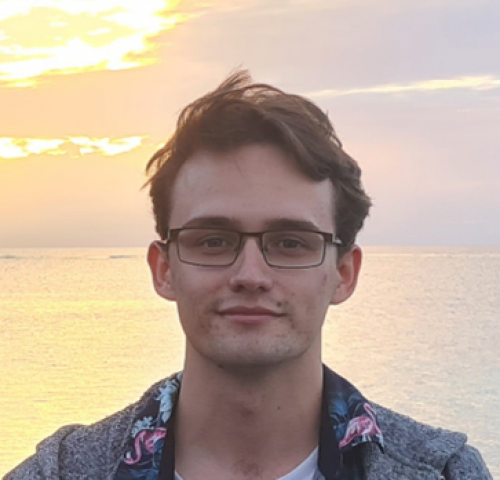
Bailey Whitbread
The University of Queensland
I am an Australian graduate student in mathematics under the supervision of Masoud Kamgarpour and Ole Warnaar at The University of Queensland. Broadly, I am interested in representation theory, geometry, and combinatorics, but I like to learn about all types of maths. Recently, I have taken an interest in machine learning, its applications in pure mathematics, and how pure mathematics provides a wealth of examples to test machine learning techniques. Outside of mathematics, I am often rock climbing, sport shooting and playing Tetris.
1. Can you give me a quick rundown about the type of mathematics you are studying and its potential impacts for the broader community (think how you would explain your work and studies to others who don’t study maths)
Broadly, my research focus is pure mathematics and algebra. During my honours and masters programs, I completed two research projects in these areas.
The first project concerned a mathematical object, called a Hecke algebra, which is fundamental to many topics in pure mathematics. I am interested in this object because it is combinatorial (in the sense that it is defined in terms of simple diagrams) and it appears in many places within the field of representation theory. Due to its ubiquity, the Hecke algebra appears in the literature in many different forms. The purpose of this project was to elucidate these different manifestations of the Hecke algebra.
The second project concerned a family of mathematical objects called character varieties. The character variety is related to many topics in mathematics and physics, including Hitchin’s equations, the geometric Langlands correspondence, and mirror symmetry. The goal of this project was to understand the geometry of character varieties. One can obtain geometric information by computing certain polynomials called E-polynomials. Using the representation theory of finite groups, we successfully computed this E-polynomial in more generality than was previously computed and unified some aspects of the literature.
2. How did you get into mathematics/statistics/data science? Was there someone or something that inspired you to this field?
My parents and teachers noticed and fostered my early skills in numeracy. I enjoyed maths because I was good at it, and I was good at it because I enjoyed it. This continued until my undergraduate degree, when I started working with my advisors and mentors Masoud Kamgarpour, Ole Warnaar, Anna Puskas and Ramiro Lafuente. Their attention to writing and speaking about mathematics has changed how I view mathematics.
3. You received a Travel Grant to attend AMSI Summer School 2024. How important was this in terms of your ability to attend, fully participate in the program and meet others studying in similar fields? Do you think it was an advantage to attend the program in-person?
I would not have considered attending an AMSI Summer School without a travel grant, so receiving this grant was crucial. I attended online in 2021, and the in-person experience this year was by far the best aspect of the program.
4. What was the most valuable part of the program for you?
The most valuable part of the program was meeting all the mathematics students located around Australia. We made many new friends at the AMSI Summer School and I look forward to catching up with them at future Australian mathematics events.
5. In the long-term, what do you think are the benefits of having attended Summer School?
I have benefited from gaining friendships and connections with other mathematics students, and from spending time on the ANU campus. Spending a month working at the Hanna Neumann building and the ANU was an enjoyable way to learn some new mathematics.
6. Summer School included a special Careers Day program which aims to help give students an idea of the kinds of career paths available to maths graduates in industry and private sector research areas. Do you feel better equipped to explore career options in the mathematical sciences after attending AMSI Summer School?
I particularly enjoyed the presentation given by the Australian Signals Directorate. The speaker was a last-minute replacement with no slides, but his off-the-cuff and authentic discussion about his work was a persuasive argument for doing mathematics in service of Australia.
7. What advice would you give to someone who is considering applying for Summer School in 2025? Should they apply and why?
They should apply if they want to meet mathematics students from all over Australia, and if they want to spend a month at a different university and city. Both were invaluable experiences that I look back at with no regrets.
8. What are your current career ambitions in the mathematical sciences sector?
I plan to complete a PhD in representation theory, and I am keen to utilise machine learning techniques while doing so. I enjoy giving presentations/lectures about what I am thinking about (or just having informal discussions) and I intend to spend many hundreds of hours at the whiteboard.
9. How did connecting with the community at AMSI Summer School support your experience?
Without the connections made, much less mathematics would have been done. We often spent nights and weekends in the common rooms working on problems together while watching a game of tennis or soccer.
10. Any other feedback/comments you would like to provide on the AMSI Travel Grant or AMSI Summer School 2024?
Thank you for the grant and thank you for the effort towards the AMSI Summer School
